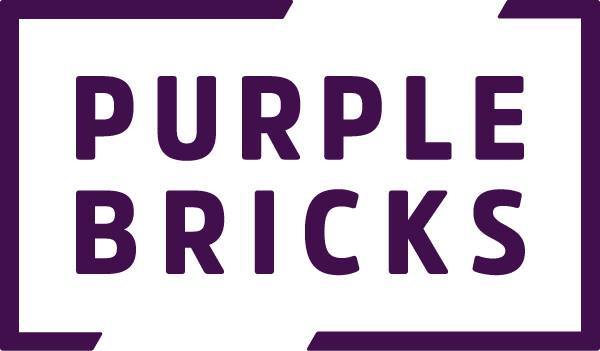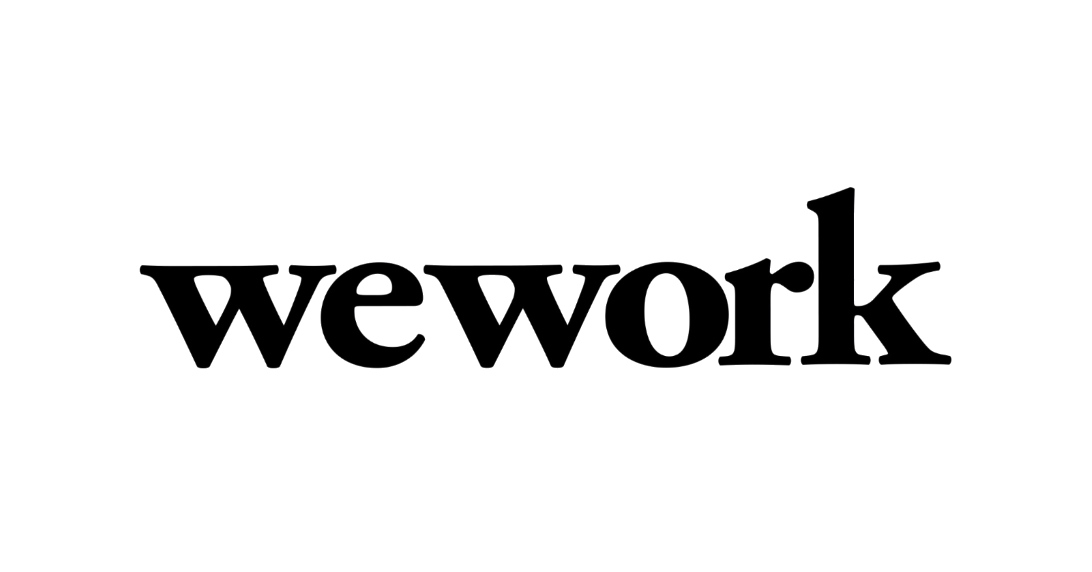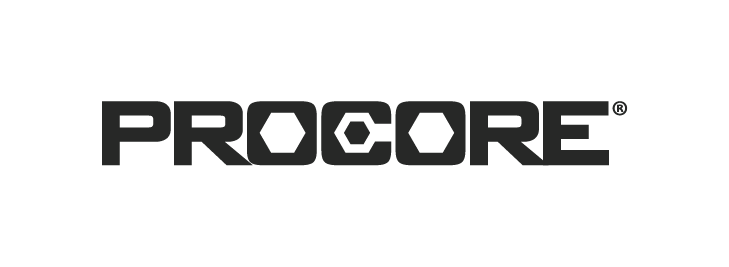Top 10 Best Proptech Companies 2023

Proptech, short for property technology, is a broad term that refers to startups and companies that use technology to refine, enhance, and digitalize any aspect of the real estate industry. This includes everything from buying, selling, and managing properties to the manner in which we interact with our built environment.
Proptech companies can be divided into several categories:
Real Estate Fintech: These companies focus on the financial aspects of real estate. They might offer platforms for real estate crowdfunding, mortgage tech, or tools to streamline transactions. Examples include companies like LendingHome or Cadre.
Smart Building Technologies: These firms use IoT technology, AI, machine learning, and other technology to create smart buildings that can monitor and adjust their own energy usage, maintain security, and more. Examples include companies like WeWork or Convene.
Real Estate Marketplaces: These are platforms that connect property buyers, sellers, and real estate professionals. They make it easier to find, buy, sell, or rent properties. Examples include Zillow, Redfin, or Realtor.com.
Real Estate Software: These companies provide software to help with various aspects of property management, investment analysis, or real estate agent tasks. Examples include companies like CoStar Group or Yardi Systems.
Construction Tech (ConTech): These firms focus on applying technology to the construction of new buildings. This can include the use of AI, augmented and virtual reality, building information modeling (BIM), and more to help design, plan, and construct buildings. Examples include companies like Procore or PlanGrid.
Shared Economy Platforms: These companies facilitate sharing economy in the real estate market such as shared workspaces or shared living arrangements. Examples include Airbnb or Knotel.
Why Proptech Companies are important

Proptech companies are important for several reasons:
Efficiency and Cost Savings: Proptech solutions often streamline traditional real estate processes, reduce manual work, and enhance efficiency, leading to significant cost savings. For instance, property management software can automate routine tasks like rent collection or maintenance requests, freeing up time for property managers.
Transparency: Proptech companies often foster transparency in the real estate market by providing greater access to data and information. This could be about property prices, local market trends, or even details about specific properties. This increased transparency can help buyers and sellers make more informed decisions.
Access and Inclusion: Proptech can democratize access to the real estate market. Platforms like real estate crowdfunding sites allow individuals to invest in real estate with significantly lower amounts of capital than traditionally required. Similarly, online marketplaces make it easier for anyone with an internet connection to browse and find properties.
Sustainability: Many proptech solutions can help reduce the environmental impact of buildings, which is significant given that buildings are a major contributor to greenhouse gas emissions. For example, smart building technologies can optimize energy usage, reducing the carbon footprint.
Improved User Experience: Proptech can enhance the experience of living, working, or otherwise interacting with buildings. This could be through smart home features, improved building design and amenities, or better property management practices.
Market Resilience: Proptech companies can make the real estate market more resilient to shocks. For instance, virtual tour technologies became crucial during the COVID-19 pandemic, when physical property viewings were often not possible.
Economic Growth: The proptech sector represents a significant source of economic growth and job creation. It also spurs innovation in the broader technology and real estate sectors.
History of Proptech Companies
The history of proptech companies can be traced back to the late 1990s and early 2000s when the use of technology in the real estate industry started gaining momentum. Here is a brief overview of the history of proptech companies:
Early Online Property Portals: The early years of proptech were marked by the emergence of online property portals. Companies like Zillow and Rightmove, founded in the early 2000s, pioneered the concept of online listings, enabling users to search for properties and access information such as prices, photos, and property details.
Property Management and CRM Systems: In the mid-2000s, proptech companies began developing property management and customer relationship management (CRM) systems. These software platforms helped property managers and real estate professionals streamline their operations, automate tasks, and enhance customer interactions.
Real Estate Analytics and Data: With the rise of big data and advanced analytics, proptech companies started leveraging data to provide insights and analytics for real estate decision-making. Companies like CoreLogic and Real Capital Analytics emerged, offering data-driven solutions for market research, valuation, and investment analysis.
Online Rental Marketplaces: In the late 2000s and early 2010s, proptech companies focused on creating online rental marketplaces that connected landlords and tenants. Platforms like Airbnb and HomeAway revolutionized the short-term rental market, while companies like Rent.com and Zumper facilitated long-term rental transactions.
Smart Home Technology: The advancement of Internet of Things (IoT) technology paved the way for smart home solutions. Proptech companies started developing devices and platforms that enabled homeowners to control and monitor their properties remotely, manage energy usage, and enhance security and comfort. Companies like Nest and August Home played a significant role in this space.
Property Technology Ecosystem: In recent years, the proptech industry has expanded rapidly, encompassing a wide range of technologies and solutions. This includes virtual reality (VR) and augmented reality (AR) for property visualization, blockchain for secure and transparent transactions, robotics for construction and property maintenance, and artificial intelligence (AI) for automated property management and predictive analytics.
Real Estate Crowdfunding and Online Investing: Another significant development in proptech is the emergence of real estate crowdfunding platforms. These platforms enable individuals to invest in real estate projects and properties, democratizing access to real estate investing. Companies like RealtyShares and Fundrise have gained popularity in this space.
Industry Collaboration and Acceleration: Proptech has gained attention from established real estate companies, leading to increased collaboration and investment. Many real estate firms have launched their own proptech accelerators and venture capital funds to support the growth of innovative startups.
Benefits of Proptech Companies

Proptech companies offer several benefits, to various stakeholders involved in the real estate sector. Here are some of the key benefits:
Increased Efficiency: Proptech solutions can automate and streamline many traditional real estate processes, reducing time and labor costs. This includes everything from property management tasks like rent collection and maintenance requests, to the home buying process itself.
Greater Transparency: With more data available and easily accessible, proptech can provide greater transparency in the real estate market. This can help buyers, sellers, and renters make more informed decisions.
Better Decision-Making: With access to real-time data and predictive analytics, investors and real estate professionals can make more informed decisions about property investment, development, and management.
Improved User Experience: Proptech can enhance the experience of living or working in a property. This might be through smart home technologies that offer increased convenience and comfort, or through better property management practices that respond to tenant needs more effectively.
Increased Accessibility: Some proptech solutions, like real estate crowdfunding platforms, can democratize access to the real estate market, allowing individuals to participate in property investment with much less capital than traditionally required.
Sustainability: Proptech can play a crucial role in promoting sustainability in the real estate sector. For example, smart building technologies can monitor and optimize a building’s energy usage, reducing its carbon footprint.
Resilience and Adaptability: Proptech can make the real estate sector more resilient to external shocks. For instance, during the COVID-19 pandemic, virtual tour and remote transaction technologies helped the real estate market continue to function.
New Business Models: Proptech has enabled the creation of new business models, such as shared workspaces or short-term rental platforms, that offer more flexibility to consumers.
Best Proptech Companies

Zillow
Redfin
Compass
Opendoor
PurpleBricks
WeWork
Procore
Cadre
VTS
Housing.com
Zillow

Zillow is a leading real estate and rental marketplace based in the United States. Founded in 2006, the company’s mission is to empower consumers with data, inspiration, and knowledge around the place they call home and connect them with the best local professionals who can help.
Here’s an overview of what Zillow offers:
Real Estate Listings: Zillow aggregates real estate listings for properties for sale and rent across the United States. The platform also includes listings for new construction, foreclosures, and pre-market properties—those not currently for sale but might be in the future.
Zestimate: Zillow’s estimated market value, known as a “Zestimate,” is computed for millions of homes using a proprietary algorithm. It’s intended as a useful starting point to help homeowners and buyers determine a home’s value.
Home Loans: Zillow provides direct home loan services through Zillow Home Loans, a lending service that allows prospective homeowners to finance their home purchases directly through Zillow.
Home Buying and Selling: Under the Zillow Offers program, the company purchases homes directly from sellers (making an “instant offer”), makes necessary repairs, and then lists the homes for sale. This service seeks to reduce stress and streamline the selling process for homeowners.
Advertising Services: Zillow offers advertising programs for real estate agents, mortgage lenders, rental professionals, and other service providers to reach homebuyers and sellers.
Rentals: Zillow provides a robust platform for rental listings, allowing renters to find their next rental home and allowing landlords or property managers to list their rental properties.
Market Analytics: Zillow produces data and research about the housing market, trends, and related topics. This information is valuable to buyers, sellers, real estate professionals, and researchers.
Redfin

Redfin is a tech-powered real estate brokerage based in Seattle, Washington, USA. Founded in 2004, the company operates in various facets of the real estate business, including helping people buy, sell, and rent properties.
Key characteristics of Redfin include:
Online Platform: Redfin operates a user-friendly website and mobile app where users can search for homes, condos, and land for sale or rent in their desired locations. Listings typically include a wealth of information, including photos, property details, local amenities, and more.
Redfin Agents: Unlike traditional real estate agencies, Redfin employs its own agents, paying them a salary and benefits, plus bonuses based on customer satisfaction, instead of commissions. This approach is intended to align the agents’ interests with those of their clients.
Cost Savings: Redfin often undercuts traditional real estate agent commissions, offering to sell homes for a lower fee, which can result in substantial savings for sellers. For homebuyers, they provide a refund of a portion of the agent’s commission.
Redfin Estimates: Redfin provides its own estimate of a home’s market value (Redfin Estimate), using a proprietary algorithm that takes into account hundreds of data points from multiple listing services (MLSs) and county records.
Services Expansion: Over the years, Redfin has expanded its service offerings to include mortgage lending through Redfin Mortgage and title and settlement services through Redfin Title and Escrow.
Direct Buying and Selling: Similar to Zillow’s program, RedfinNow service allows homeowners to sell directly to Redfin, bypassing the traditional real estate process. After the purchase, Redfin makes necessary repairs and updates and then sells the home.
Compass

Compass is a real estate technology company based in the United States. Founded in 2012, Compass uses technology to simplify the process of buying, selling, and renting a home.
Here are some of the key features of Compass:
Agent Support: Compass provides a platform for real estate agents, enhancing their productivity and enabling them to provide better service to their clients. The platform includes marketing tools, market data, and other resources.
Online Platform: Compass offers a website and mobile app where users can browse real estate listings, connect with a real estate agent, and track the market in real time.
Compass Concierge: This program covers the upfront costs of select services that can increase a home’s selling price, such as staging, painting, and more. The costs of these services will be taken from the sale proceeds of the home, with no hidden fees or interest charged to the seller.
Compass Coming Soon: This feature provides exclusive early access to listings before they officially hit the market, giving buyers an advantage in competitive markets.
Data-Driven Insights: Compass provides real-time data and insights to its agents and customers, helping them make informed decisions.
Collaborative Search: With a feature called ‘Collections,’ Compass allows agents and clients to collaborate on a home search, providing a more interactive experience.
Bridge Loans: Compass offers a bridge loan program that provides the funds to buy a new home before selling the old one, smoothing the transition between homes.
Opendoor

Opendoor is a prominent US-based real estate technology company that has fundamentally streamlined the home selling and buying process. Founded in 2014, Opendoor has made a significant impact on the real estate industry with its innovative business model.
Here’s an overview of what Opendoor offers:
Direct Home Buying and Selling: Opendoor’s core business model involves directly buying homes from sellers, making necessary repairs or improvements, and then selling the homes to buyers. This service reduces the traditional selling process’s stress and uncertainty for homeowners.
Opendoor Estimate: Opendoor provides an estimate for the homes they are willing to buy based on an extensive, data-driven valuation model. Sellers receive an “Opendoor offer,” which they can accept or reject.
Flexible Closing: Sellers can choose their closing date, giving them greater flexibility in moving into their new home.
Home Trade-In: Opendoor offers a trade-in service, where you can sell your current home and buy a new one simultaneously through Opendoor, simplifying the transition.
Self-Touring: For home buyers, Opendoor homes can be visited without an appointment. The company’s app can be used to unlock the door of any Opendoor home and tour it at the buyer’s convenience.
Financing Services: Opendoor also offers financial services, including mortgages and home warranty, through its Opendoor Home Loans program.
Buyer’s Experience: Opendoor ensures a smooth buying process, where buyers can browse listings online, visit homes on their own schedule, and make offers directly through the platform.
PurpleBricks

PurpleBricks is a UK-based real estate brokerage that operates online. Founded in 2012, the company seeks to transform the traditional real estate agency model by offering services at a fixed fee, irrespective of the value of the property.
Here are some key features of PurpleBricks:
Fixed Fee Structure: Unlike traditional real estate agencies that charge a percentage of the property’s sale price as commission, PurpleBricks charges a flat fee for their services. This can often result in significant cost savings for the seller.
Online Platform: PurpleBricks operates an online platform where sellers can list their property and buyers can browse listings. The platform is available 24/7, offering convenience and accessibility to its users.
Local Property Experts: Despite being an online platform, PurpleBricks provides local property experts who offer valuation and advice, conduct viewings, negotiate with buyers, and oversee the sale process.
Real-time Updates: Sellers have access to a real-time dashboard where they can review feedback from viewings, see the performance of their listing, and communicate with their local property expert.
Transparent Process: The online platform facilitates direct communication between buyers and sellers, ensuring transparency throughout the process.
Post-Sale Support: PurpleBricks also provides post-sale support, assisting with the legal and administrative tasks that follow an accepted offer.
WeWork

WeWork is a U.S.-based company that provides shared workspaces for technology startups, freelancers, small businesses, and large enterprises. Founded in 2010, WeWork has become a global leader in flexible workspace solutions.
Here are some key features of WeWork:
Flexible Workspaces: WeWork provides a range of workspace options including open workspaces, dedicated desks, private offices, and custom build-outs for larger businesses. This allows businesses of all sizes to find a solution that fits their needs.
Community: WeWork places a large emphasis on building a community amongst its members. This is facilitated through networking events, professional workshops, and social activities.
Amenities: WeWork spaces typically offer high-end amenities like comfortable lounges, private phone booths, meeting rooms, high-speed internet, printers, and free refreshments.
Global Access: Membership at WeWork provides access to their network of workspaces around the world, offering convenience for traveling professionals and businesses with international operations.
Flexible Terms: WeWork offers flexible membership agreements ranging from month-to-month to multi-year contracts.
WeWork Labs: WeWork Labs provides early-stage startups with a dedicated workspace, mentorship, and educational resources.
Technology: WeWork has developed digital tools for members to book workspaces and conference rooms, access their benefits, and connect with the global WeWork community.
Despite experiencing financial difficulties and a failed IPO attempt in 2019, WeWork has played a significant role in transforming how businesses think about workspaces. It has popularized the idea of co-working and flexible workspaces, which has been particularly relevant in the context of an increasingly digital and remote workforce.
Procore

Procore Technologies, Inc. is a leading provider of construction management software. Based in the United States, the company was founded in 2003. It provides a unified platform that connects teams, applications, and devices in one centralized hub to streamline construction project management.
Here’s an overview of what Procore offers:
Comprehensive Project Management: Procore’s platform allows project management teams to manage their projects, resources, and financials from project planning to closeout. The platform includes tools for document management, job costing, time tracking, and collaboration.
Collaboration: The platform is designed to facilitate collaboration across all project stakeholders, from owners and general contractors to subcontractors and field workers. This includes features like real-time communication, document sharing, and task management.
Integration: Procore integrates with other important software tools used in the construction industry, including accounting software, design tools, and more. This allows teams to keep their workflows streamlined and avoid having to switch between multiple disparate systems.
Customizable: Procore’s platform is customizable to suit the needs of different types of construction projects, from residential and commercial buildings to infrastructure and industrial projects.
Quality and Safety: Procore includes tools to manage quality and safety on construction projects, including inspections, incident reports, and observations.
Training and Support: Procore provides a range of training resources and customer support to help users make the most of the platform.
Cadre

Cadre is a technology-enabled real estate investment platform based in the United States. Founded in 2014, Cadre provides individuals and institutions direct access to large commercial real estate investment opportunities that are typically only available to large institutions or high net worth individuals.
Here’s an overview of what Cadre offers:
Real Estate Investment Opportunities: Cadre offers vetted commercial real estate investments across the United States. This includes multifamily, office, and industrial properties.
Direct Access: Cadre’s platform provides direct access to these investment opportunities, bypassing the traditional private equity model where investments are pooled in a fund.
Transparency: Cadre provides transparency into each investment, including detailed information on the property, the investment strategy, and the expected return profile. Investors can choose which deals they want to invest in.
Secondary Market: Cadre offers a secondary market where investors can sell their investments to other Cadre users before the end of the holding period, providing a level of liquidity that is rare in the private real estate market.
Investment Management: Cadre manages the investment from acquisition to disposition, including asset management, property management, and reporting.
Minimum Investment: The minimum investment for individuals was $50,000, but this amount could change, so please refer to the latest sources for current information.
VTS

VTS (View The Space) is a leading commercial real estate software company based in the United States. Founded in 2012, VTS provides a platform for landlords and brokers to better manage their end-to-end leasing process and tenant relationships.
Here’s an overview of what VTS offers:
Leasing and Asset Management: The VTS platform provides tools for tracking leads, managing deals, and maintaining tenant relationships. It enables real-time collaboration, ensuring everyone on the team is on the same page.
Market Intelligence: VTS Market provides real-time, actionable market data. Landlords and brokers can track market trends, compare properties, and gain valuable insights to make informed decisions.
Marketing: VTS enables users to create engaging, digital marketing materials for their properties. It offers features such as virtual tours and online deal rooms, allowing potential tenants to experience spaces remotely.
Data Analytics: With VTS Data, users can access industry data and benchmark their performance against the market. This can guide strategic decision-making and forecasting.
Tenant Experience (VTS Rise): Launched as a new product, VTS Rise is a tenant experience platform that allows landlords to provide a superior experience to their tenants, thereby increasing tenant satisfaction and retention.
Integration: VTS can integrate with other systems like property management and accounting software, creating a more seamless workflow.
Housing.com

Housing.com is an Indian proptech company that provides an online real estate platform connecting buyers, sellers, and renters. Founded in 2012, Housing.com has become one of the prominent players in the Indian real estate market.
Here are some key features of Housing.com:
Property Listings: Housing.com offers a comprehensive database of residential and commercial properties available for sale, rent, and lease across India. Users can search for properties based on various criteria, such as location, price, size, and amenities.
Verified Listings: The platform emphasizes verified listings, ensuring the accuracy and reliability of property information. This helps users make informed decisions and minimizes the risk of dealing with fraudulent or misleading listings.
Visual and Interactive Listings: Housing.com provides high-quality photos, virtual tours, and interactive maps to enhance the property browsing experience for users. This allows potential buyers and renters to get a better understanding of the property before visiting it physically.
Smart Search: The platform offers advanced search filters and algorithms that help users refine their property search based on their specific requirements and preferences.
Neighborhood Information: Housing.com provides detailed neighborhood information for each property listing, including nearby amenities, transportation options, schools, healthcare facilities, and more. This allows users to evaluate the location’s suitability for their needs.
Rental Management: The platform offers features for rental management, including rent agreements, rent payment tracking, and tenant management, to simplify the process for landlords and tenants.
Home Loans: Housing.com provides information on home loans and connects users with partner financial institutions to help with the financing process.

